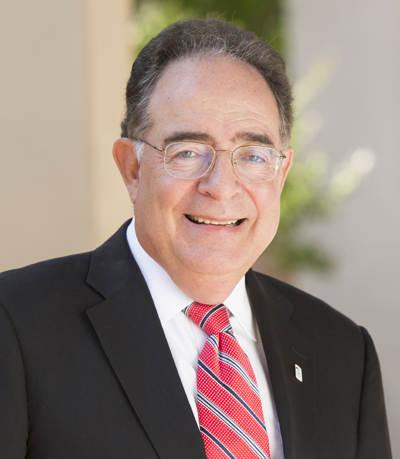Emergency Ebola Funding For Global Health, Security
The following is a letter written by UMB President Jay A. Perman, MD that appeared in The Hill on Wednesday, December 10, 2014.
President Obama has asked Congress for $6.2 billion in emergency funds to advance the U.S. fight against Ebola. I urge Congress to approve this funding, which is critical to containing the epidemic in West Africa, to improving the capabilities of American health systems to care for Ebola patients, and to developing vaccines and therapies to prevent and treat the disease.

Jay A. Perman, MD, President of the University of Maryland, Baltimore
Since October, the University of Maryland School of Medicine (UMSOM) has been conducting the only Ebola vaccine trial in Africa. The school’s Center for Vaccine Development (CVD) has vaccinated more than 90 volunteers in Mali, where a handful of Ebola deaths have been recorded and where hundreds of people are being monitored for potential exposure to the virus.
The vaccine being testing in Mali is one of two versions of the vaccine that last month showed promising results in terms of safety and immune response in an early-stage clinical trial at the National Institutes of Health (NIH). The CVD is testing the second version in a separate trial in Baltimore.
In a developing country like Mali, it typically takes 6‒11 months to secure the many approvals needed to transition a vaccine from research in animal models to a human clinical trial. In this case—with an international consortium coordinated by the World Health Organization fast-tracking the vaccine to trial—the transition took only two months. Our urgency and our focus have enabled a historically rapid scientific response.
But speeding vaccines to trial is only one of the tasks before us. If we are to eradicate this disease, if we’re to help the thousands suffering right now and protect millions more in the future, then we have significantly more work to do.
The CVD‒Mali, our partnership with the Malian Ministry of Health, co-directs the country’s clinical trial—but it’s also developed an Ebola surveillance system, integrated the government and nongovernment entities working on the disease, established an NIH-sponsored lab that performs rapid Ebola testing, and built two isolation wards in the cities of Bamako and Kayes. Its work in early diagnosis, contact tracing, and training for health workers and burial teams in the use of personal protective equipment has been instrumental in preventing widespread transmission of the virus.
We’re at a critical moment. The U.S. must invest in the science, training, logistics, facilities, and equipment that will contain and ultimately end Ebola in West Africa, and stop its spread to developing and developed nations.
The emergency funding requested by President Obama would advance critical work at countless U.S. universities, hospitals, and health systems already making headway against Ebola and would open up new avenues of investigation.
For instance, UMSOM’s Institute for Genomic Sciences (IGS) has unmatched expertise not only to provide rapid and large-scale genome sequencing of the Ebola virus, but also to advance basic science research in genomics that will prepare us for future threats to human health. Teams of researchers from IGS, CVD, and our Institute of Human Virology can respond to Ebola outbreaks, provide post-infection surveillance, and develop new genomic methods to monitor the spread of infection mutations.
With extensive international experience in hospital infection control, our medical school is ideally equipped to study and test novel personal protective equipment and to train local and global health workers in its use.
The University of Maryland School of Nursing has close ties to Liberia and is piloting a program there that trains community-based nurses and physician assistants to lead reconstruction of the country’s health care systems in the wake of national crises like Ebola.
These efforts—joined to those of U.S. health agencies, universities, medical systems, foundations, and nonprofits—are critical to a rapid and decisive Ebola response, to securing the health of thousands of people around the world and right here at home, and to protecting populations against grave infectious threats that will undoubtedly emerge post-Ebola.
These efforts are also critical to reasserting this country’s leadership inlife-saving science and biomedical research. We cannot let a year-end budget battle jeopardize this leadership. We must act—and act now.
I ask Congress to approve the emergency Ebola funding and allow our best science and our best practice to end an epidemic that’s claimed far too many lives.



